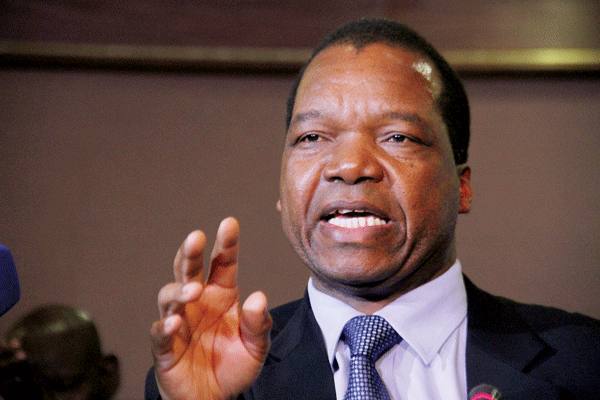
BY FIDELITY MHLANGA
The government has been accused of fuelling economic instability through inconsistent currency reforms and too many regulations.
Zimbabwe ended a decade of dollarisation in June and readopted the local currency that was abandoned in 2009 due to hyperinflation.
Tomorrow the Reserve Bank of Zimbabwe (RBZ) is set to roll the first two sets of bank notes, which it says would mark the final phase in the return of the Zimbabwe dollar.
On Friday, speakers at the Institute of Chartered Accountants (ICAZ) summer school held in Harare, however, said the way the authorities rolled out the currency reforms did not inspire confidence.
MMC Capital executive director Itai Chirume said money creation by the government poisoned the investment environment in the country.
“When we started printing money we had what we called United States dollars, which was not US dollars (bond notes),” he said. “We created a situation where we now owe investors in the form of dividends.
“We can’t expect new money to come in when investors who experienced such things are complaining.”
- Chamisa under fire over US$120K donation
- Mavhunga puts DeMbare into Chibuku quarterfinals
- Pension funds bet on Cabora Bassa oilfields
- Councils defy govt fire tender directive
Keep Reading
In 2016, the RBZ introduced bond notes whose value was at par with the US dollar until October last year when the currency reforms started.
Since then the government has issued a number of statutory instruments as it navigates the transition from a multi-currency system to the mono currency regime.
Tafadzwa Bandama, the Confederation of Zimbabwe Industries chief economist, said the plethora of legislation rolled out by the government was causing confusion in the economy.
“You don’t run the economy through statutory instruments,” he said. “The government has been introducing so many statutory instruments and before you understand it another one is out. It’s not good for confidence building.”
His sentiments were echoed by Rutendo Muchinguri, a corporate lawyer.
“You cannot use statutory instruments to regulate economics,” she said.
“You cannot wake up and tell people that the value of bond notes is the same as the US dollar. “Economics is self-determining. “Let’s not use the law to regulate economics.”
Prominent banker Nigel Chanakira said the return of the Zimbabwe dollar was coming at a time when confidence in the economy was waning.
Chanakira said there was need to stabilise the economy through a political settlement between the country’s major political parties.
President Emmerson Mnangagwa recently rejected a proposal by the Zimbabwe Council of Churches to delay elections by at least seven years while the country’s political leaders worked on reforms that could return the country to stability.
Opposition MDC leader Nelson Chamisa has refused to accept Mnangagwa’s 2018 election victory saying the polls were rigged.
“We introduced a mono currency regime when there was no confidence (in the economy), Chanakira said.
“For me I genuinely believe in what the churches put together. “We must rally behind the push for a government of national unity .
“We can’t run the race with one party behind because the urbanites, who determine the exchange rate do not have confidence in the administration.”
Zimbabwe enjoyed a brief economic turnaround between 2009 and 2013 when the late president Robert Mugabe and MDC leader Morgan Tsvangirai ran an inclusive government.
Mugabe’s ouster in a military coup in 2017 brought hopes of a long awaited economic turnaround under Mnangagwa, but the crisis has intensified since the new administration introduced austerity measures late last year.
“In the 1980s the Unity Accord brought economic growth,” Chanakira added.
“Fast forward, during the government of national unity Zimbabwe saw economic growth.
“Post the 2017 march (against Mugabe) we should have combined forces.
“For moral suasion you need the market to be one.
“Post 2018 elections the urbanites did not bode well with the election results.
“They marched in August last year and there were shootings and the good will from the international community ebbed. We blew the chance away.”
Bandama said the government’s austerity measures had only served to worsen the economic situation in the country.
“I don’t think austerity measures are working,” he said. “We hoped higher taxation would be accompanied by good service delivery.
“But this time we have no working health system, poorly funded education and no adequate power.”
Zimbabwe National Chamber of Commerce chief executive Christopher Mugaga said the country needed strong institutions to stop the economic rot.











